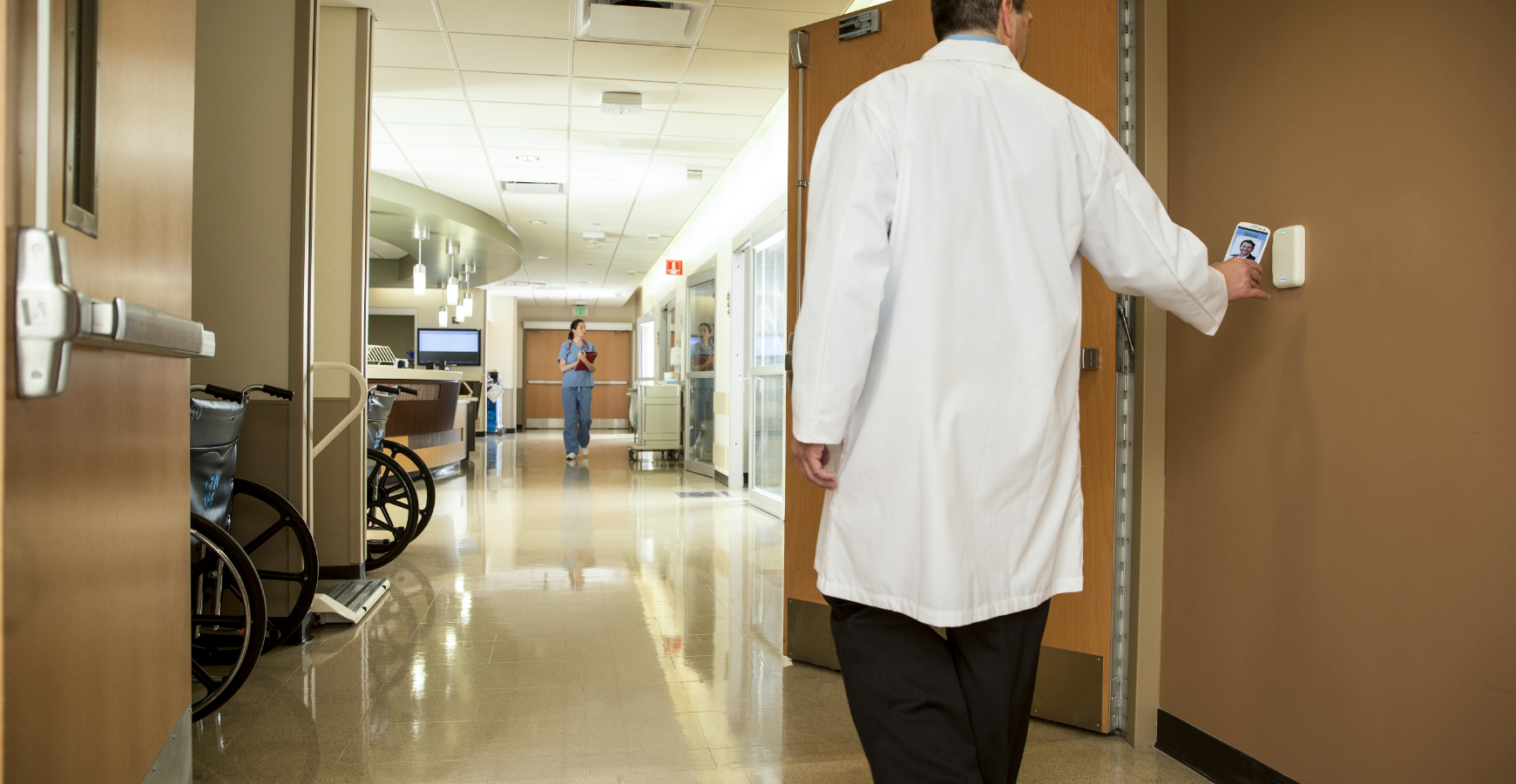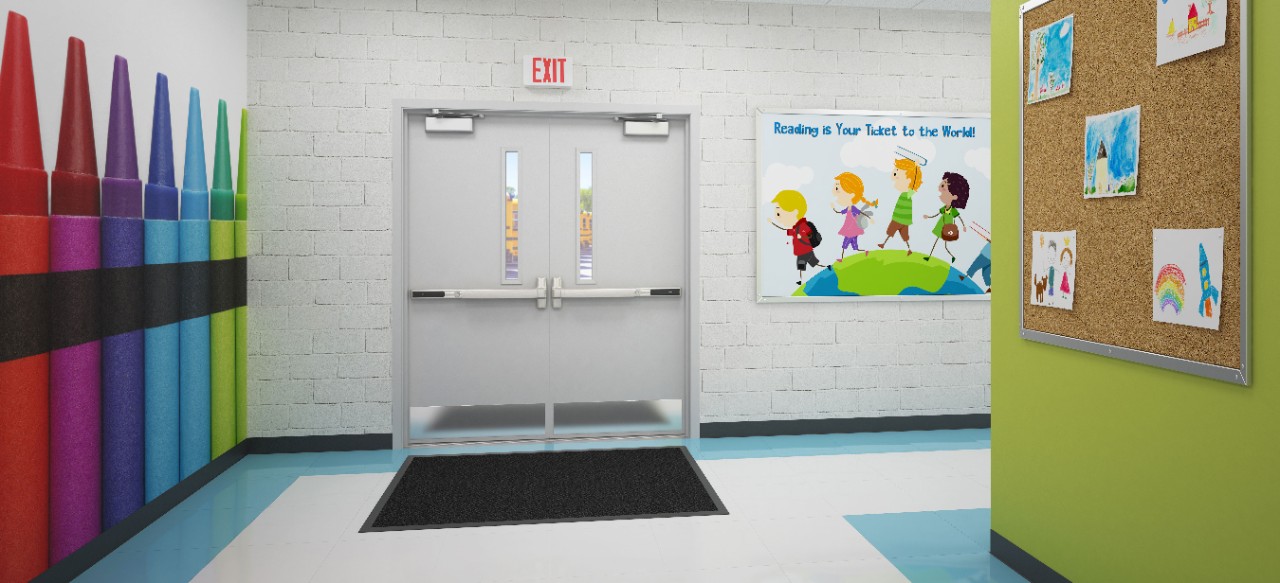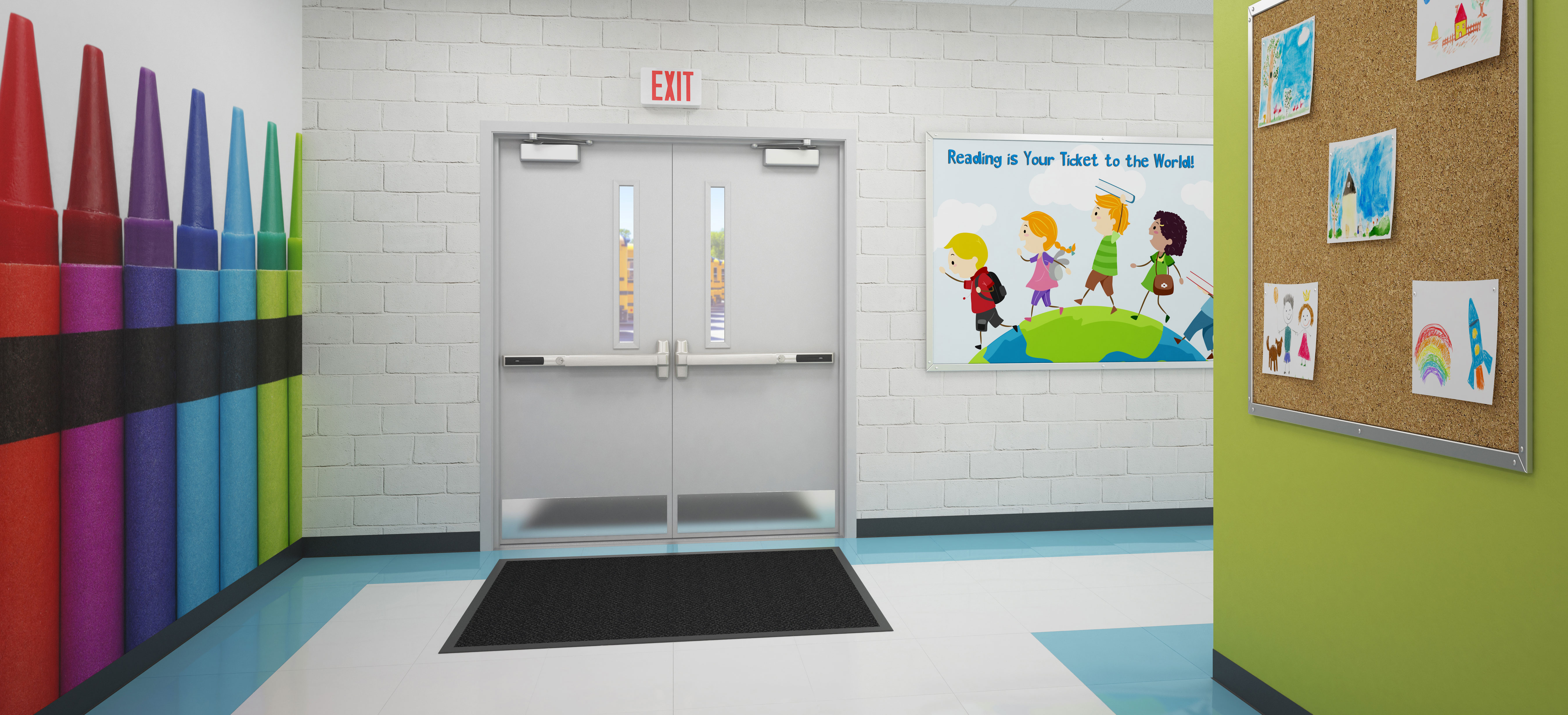*A condensed version of this article originally ran in the May 2021 edition of Door Security + Safety
By Ken Cook, Allegion’s National Education Safety Manager
The past 15 months have been like no other in our lifetime. The global pandemic has touched every one of us in ways we could not have imagined. The arrival of COVID-19 led to lockdowns, stay-at-home orders, travel bans and social distancing. Things we never could have imagined became standard practices around the world.
The impacts of the virus and changes it produced vary per region, community, family and person. Children have been affected in a unique way as their routines have been dramatically turned upside down. While there are many ways the pandemic has impacted students, I’ll explore a few using Maslow’s hierarchy of needs and describe how each relates to school safety and security.
Physiological needs of students
When the lockdowns occurred and kept students away from schools, many school administrators worried students who depended on school meals would no longer have access to meals they received at school. An analysis by researchers at Northwestern found food insecurity has more than tripled among households with children to 29.5 percent. That’s close to one-third of all households with children in the United States.
In an interview with NPR, Alyssia Wright, executive director of Fulton County Schools' nutrition program in Fulton County, Ga, said, "Every day I worry about them. Every day. We come up with ways every week to find a new way to get meals to our kids. It was a drastic change." Before her schools went remote last year, they served between 50,000 and 60,000 meals a day. After students were sent home, Wright said they gave out roughly 70,000 meals per week. Many of us have experienced how difficult it is to concentrate when we are tired or hungry. Imagine how difficult it for children to learn when empty stomachs are the norm.
Food security isn’t the only concerns for school administrators. Six percent of U.S. children, ages 6 through 17, have serious emotional or behavioral difficulties. Many of these children depend on schools for access to vital therapies. When schools and doctors' offices stopped providing in-person services last spring, kids were untethered from the people and support they had come to rely on.
"The lack of in-person services is really detrimental," Dr. Susan Duffy, a pediatrician and professor of emergency medicine at Brown University said to NPR. "So school-based services are one, but also in-person services in general are disrupted [by the pandemic]."
Safety needs in K-12
Social unrest, while not new to schools, is also a concern for school administration. In April 2018, after the Marjory Stoneman Douglas High School Shooting, thousands of students around the country walked out of classes at 10 a.m., some in defiance of school authorities, in the first major coordinated effort. The U.S. has experienced a great deal of social unrest since the start of the pandemic. To think schools will be isolated from civil disturbances once reopened could be overlooking a major treat to student safety.
Active assailants don’t seem to be going away. At the time of writing this, active shooter events have occurred in Atlanta and Boulder, Colo. School administrators will need to continue their work to detect, deter and delay similar assaults from occurring on school grounds.
Safety and security of students has always been a priority for those responsible for educating our youth. Johanna Lacoe, published by the Institute for Education and Social Policy in 2013, stated that safety is a prerequisite for effective learning and feelings of safety are positively related to both behavioral and academic outcomes.
In the past our industry helped students feel safe, by supporting schools in physical security efforts. Now, as local community member and as an industry we still need to ask ourselves: what else can we do to help students learn more effectively? Schools are part of our community. There may be existing programs available in your area providing opportunities to share your time, talent and treasures. We can make a larger impact for future generations if we and our organizations partner with schools now to help students learn and grow.
Share resources and mentor
Sharing our current resources is another way we can help. When lockdown orders were first announced, schools began to look at how they could virtually teach students. In many cases school were not prepared and had to develop content and methods for using online platforms like Zoom and Google Hangouts. This was a challenge for many teachers. To complicate matters even more, in addition to adapting a curriculum to virtual learning, some teachers later had to also plan for in-person learning when schools began offering both face-to-face and virtual learning.
Allegion has participated in National Manufacturing Day for many years by inviting students to tour our manufacturing facilities and listen to employees talk about some of their career paths. When we realized students would not be able to tour our facilities in the fall of 2020, we created virtual tours by hosting web-based video meetings from our manufacturing facilities, inviting students in the communities where our plants are located. We quickly realized recordings of these meetings could be shared with schools throughout the U.S., so we created digital resources and discussion guides for teachers and distributed this content to our network of schools.
Another opportunity for all of us to get involved is sharing our knowledge and experiences. The concept of mentoring is not new. Mentoring was first mentioned in Homer’s Odyssey when Odysseus entrusts his young son Telemachus to the care of Mentor. Most of us have mentors in our lives and there are many opportunities to become a mentor. One such program I would like to mention central to our industry is the ACE Mentor Program. ACE stands for Architecture, Construction and Engineering and the program aspires to engage, excite and enlighten high school students. It encourages students to pursue careers in architecture, engineering and construction through mentoring and continued support for their advancement into the industry. More information can be found at acementor.org.
Advocate for school safety
Today, there are many companies promoting door security or barricade products in schools that do not comply with the required codes and the Americas with Disability Act. To date, no barricade devices comply with life safety codes and ADA requirements. Despite this being the case, it hasn’t stopped companies from promoting and selling these products to schools that may not know the additional risk these devices could introduce to students and teachers. DHI and DSSF have been actively involved in educating and preventing states from unknowingly passing legislation that would expose students and teachers to great danger by allowing these devices in schools. Getting familiar with the materials and sharing this information with local and state agencies in charge of school security is another way we can continue to assist schools. More information can be found at dhi.org/advocacy and lockdontblock.org.
Partner Alliance for Safer Schools
Soon, students will be back to school and our lives will begin to adjust to normalcy again. We discussed the emotional strain and social unrest issues that have been magnified during the recent pandemic and the recent events in Atlanta and Boulder. Now is a good time for schools to revisit their security plans and determine if there are any changes that need to be made. Partner Alliance for Safer Schools (PASS) has resources that have vetted by the U.S. Department of Homeland Security, U.S. Department of Education, U.S. Department of Justice and the U.S. Department of Health and Human Services. PASS has the methodology to create safe and secure learning environments for students, faculty and staff through the implementation of comprehensive security guidelines as an effective means to deter, detect and delay potential threats. If you are not familiar with PASS, I encourage to learn more.
Academic achievement is a critical step toward future success in adult life, increasing employment and earnings and the probability of other stabilizing life events such as marriage. According to Lacoe’s paper, “studies show that early childhood test scores are positively correlated with future labor market outcomes.” Now, more than ever, we need to consider doing more to help our local education authorities. We have the resources, time, talent and treasures to make a difference in the lives of children on our community. Let’s start with the mindset of our own teachers and serve others has they have served us. It’s time to give back.




































